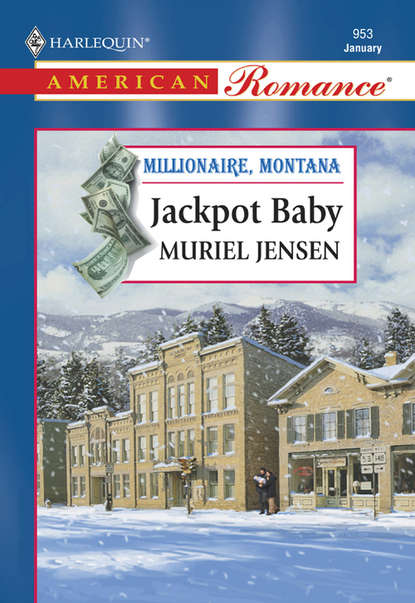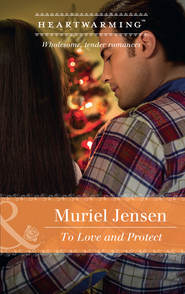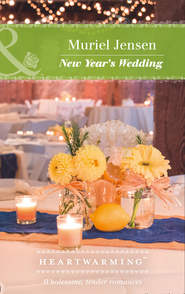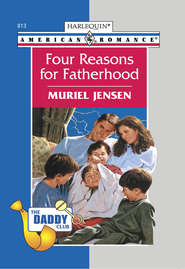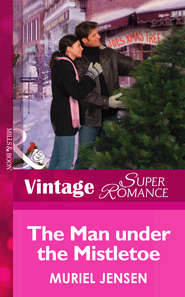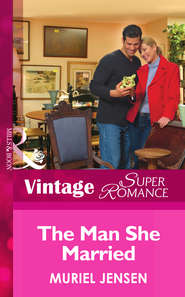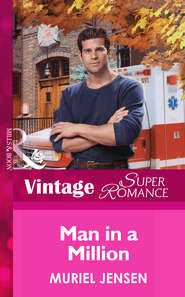По всем вопросам обращайтесь на: info@litportal.ru
(©) 2003-2025.
✖
Jackpot Baby
Автор
Год написания книги
2018
Настройки чтения
Размер шрифта
Высота строк
Поля
She followed every number with her finger, heard Dean read every number on the sixth line of the ticket—the winning line. They were Gwen Tanner’s numbers because she, like Shelly, had played her age—twenty-nine.
Shelly looked up at Dean, unable to speak. She parted her lips, but her throat refused to make a sound.
“How much did you win?” someone in the crowd asked.
“Forty—million—dollars!” Dean shouted, hands raised to heaven.
“That’s…” Dev was calculating. “Three million, three hundred and thirty-three thousand, three hundred and…well, you know. One of those numbers with threes that go on forever!”
“There’ll be taxes.” That brutal dose of reality was provided by Wyla Thorne, a pig farmer twice divorced, who usually invested with their group but had grown tired of the disappointment. Her life, Shelly guessed, judging by the woman’s attitude, had been full of it. Jack Hartman, the veterinarian, had bet in her place.
“We’ll still be millionaires!” Dev said, grinning from ear to ear. Then he wrapped his arms around Amanda Bradley, Shelly’s friend and Dev’s nemesis. Amanda owned Ex Libris, a bookstore that shared the building that housed the Heartbreaker. She and Dev were at odds about everything. But he’d apparently forgotten that in the joy of the moment as he waltzed her out of earshot.
“Do you know what this means?” Dean asked, hugging Shelly, bringing her thoughts back to her own good fortune.
She nodded, afraid to speak the word aloud. “Solvency. Maybe even…” It was a word most merchants in Jester never even considered. “Wealth!” she whispered reverently.
He laughed and, putting an arm around her shoulders, raised the other in a roundup gesture. “Come on, everybody. I’m buying drinks!”
They partied at the Heartbreaker for hours and it was three in the morning before everyone finally went their separate ways with promises to meet at The Brimming Cup the following morning. They’d commissioned Dean to hire an attorney for their group, who would call the lottery commission in the morning and find out the procedure for claiming their winnings.
Shelly sat alone in her dark living room—thinking she’d never be able to sleep and she had to be up at five anyway—and dealt with a weird and out-of-place trepidation.
Things were going to change, she’d realized in alarm about an hour ago.
Twelve people whose businesses had been hanging by a thread had just won enough money, even after taxes, to support themselves through old age if they were careful and invested wisely.
She made a note to herself to find out what in the heck a Roth IRA was. Everyone was saying it was the thing to do with their money.
That was already a small suggestion of change. People who never thought beyond paying the rent or the mortgage were now throwing around financial terms she’d never heard before.
So her financial woes were over, but she couldn’t help wonder just what had begun tonight. Life in Jester had been difficult, but predictable. Hot in the summer, cold in the winter, friends were family and family was everything.
The Merchants’ Association of Pine Run, the county seat, had always laughed at Jester because nine businesses comprised the entire economic base of the town. Still, they’d managed to do their part in community and charitable events. Imagine, she thought, what they would be able to do now.
But would money affect the cohesive quality of their group? Would they build bigger houses and bow out of business life downtown, preferring lives of leisure? Or would some leave Jester altogether, finally able to chase their dreams?
She’d accepted that her life was here, but she’d come to depend upon these people to give it its warmth and texture. They were what stood between her and loneliness. She didn’t think of herself as a business or career woman; she thought of herself as a nurturer. She provided food that kept her friends going, she listened to their problems, told them hers, exchanged advice and affection.
She needed them!
“Okay, calm down,” she told herself. “You tend to grasp and cling when you’re frightened. Relax. Forty million dollars is a good thing.”
Maybe it would bring her a man, she speculated, that little frisson of excitement tickling between her breasts again. She wouldn’t want a man who was attracted to her money, of course, but wouldn’t it be wonderful if her winnings made her more attractive?
What would it be like to have an unlimited wardrobe allowance? To have her hair done every week rather than every other month when she had it cut? To buy quality makeup instead of whatever was on sale at Cozy’s Drugstore, and a fragrance that was advertised in Vogue?
Her excitement flared until she realized this was just another indication of the changes Jester was in for. Practical, hardworking Shelly Dupree was thinking about makeup…and men!
Chapter One
Shelly stood on the corner of Main Street, waiting for the light midafternoon traffic to pass, and stared at the check in her hand. One million, one hundred thousand dollars! The group had chosen the option of getting their money all at once rather than the annuitized $84,000 a year, and that had dropped the full figure by half. Still a fortune, as far as she was concerned.
She knew it was unsophisticated to revel in her good fortune, probably even reckless to hold the check in her hand for all the world to see, but she couldn’t help it. She studied the neat, stick-straight ones printed on the check, then counted the zeroes. Five. Five zeroes! Seven figures! She was a millionaire!
“Hey, Shelly! You buying us lunch today?” Chet Brower waved from ten feet above her in the bucket of the city works department truck. He and his brother Chuck, who stood below in a hard hat, were changing the street signs in downtown Jester—a change insisted upon by Mayor Bobby Larson. Few of the merchants were in agreement—the old names went back to Jester history—but the whole town was terminal with lottery fever and the influx of new life it had brought to Jester, even before any of the Main Street Millionaires had deposited their checks.
Main Street was still Main Street, but the names of three major cross streets were being changed today. Her corner was now Big Draw Drive, a block east was Megabucks Boulevard and Lottery Lane was a block west. She’d expected things to change, but she hadn’t been prepared for just how much.
News vans stood on every corner and seemed to spew an enormous number of people into downtown. They represented Billings, Helena, Missoula, even television stations from neighboring states. Reporters were scattered all over town, interviewing shop owners and people on the street, determined to make what they were calling the Main Street Millionaires national news.
Gawkers had arrived from Pine Run, from Baker, Billings, and even Helena. Everyone wanted a glimpse of the Lucky Dozen, another name their group had acquired.
Chuck came to Shelly and swept off his hard hat. The Brower twins were tall and big, the backbone of the city works department. They looked like linebackers, but thanks to their minister mother, they had hearts of gold.
“Marry me, Shelly,” Chuck said, getting down on one knee on the sidewalk. “Then, buy me a Harley.”
Shelly laughed and swatted his shoulder. Half a block away, a photographer drew a bead on them.
“Oh, let’s see,” she said, pretending to give it some thought. “That would make me the Bride of Chuckie, wouldn’t it? Thanks, but I don’t think so.”
“No!” Still on his knee, he caught her hands. “Think of me as Charles! Prince Charles! You’d be a princess if you married me.”
Shelly patted his thinning brown hair. “Then you’d have two princesses, Chuck. Because you’re already married. You have three little redheaded children who look just like their mother. They’d be definite cogs in the works of a permanent relationship.”
He held his hat to his chest and said with sober sincerity, “I could put up with it if you’ll buy me a Harley.”
“How about a burger?” Chet called from the bucket. “And you don’t have to marry me.”
Shelly looked up to see that Chet had taken down the old Peterson Drive sign with the bullet hole in it and put up the shiny new Big Draw Drive—white lettering on a forest-green background.
“Free lunch for all my regulars tomorrow,” she said, a little stab of trepidation settling in her chest beside the tremors of excitement. “See you both?”
Chuck got to his feet. “You’re a woman of style, Shelly,” he said, sweeping his hat with a flourish as he bowed.
“Yeah, yeah,” she teased, starting across the street. “See you tomorrow.” She blew Chet a kiss over her shoulder.
Harvey Brinkman’s photographer shot her walking across the street while Harvey stood by, dressed as always in jeans and a flack jacket—a foreign correspondent wanna-be stuck at the Pine Run Plain Talker, circulation just over 6,000, because he had a reputation for erroneous reporting. And at just twenty-five, with a slight build, a pale complexion and curly blond hair, he talked like a gangster from the forties.
“Hi, doll!” he said as Shelly stepped onto the sidewalk. “Want to share with your fans what you’re doing with the dough?”
“Nothing exciting,” she replied politely. “Just taking it to the bank.” What she really wanted to do was push him into the old trough in front of the Heartbreaker to clear his head and remind him that he was in Jester, Montana, not Afghanistan, and that this was the twenty-first century.
But the trough that once held water was now a planter, and if he hadn’t figured out what time he was living in, there was little she could do to help him.
“There’s got to be something you can tell us, Shelly,” he pleaded, hurrying along with her as she passed the barbershop and headed for Jester Savings and Loan. “You selling the coffee shop and going to Europe? Staying home, but spending all your moola on new duds?” His cursory glance at her blue corduroy slacks and the wool-lined red parka that covered a blue turtleneck suggested that she really ought to consider that. “Nobody ever gets to see what you look like under that big apron you always wear.”
She kept walking, determined to suggest at the next city council meeting that they put water back in the old trough.





